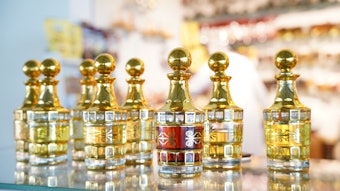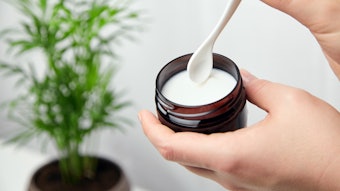Lip gloss imparts shine, may add color and occasionally provides moisturization. However, just as the concepts of cosmeceuticals and nutricosmetics have moved into makeup, lip gloss has taken on new roles. In addition to the standard benefits imparted by lip gloss, consumers can experience extra benefits they may not normally think to expect. Because the lips are a gateway into the body, formulators are devising new ways to benefit the body through them. In addition, the lips’ location near the nose provides perfumers with a new opportunity to incorporate olfactory response materials into lip gloss.
Recent lip gloss claims include aiding in weight loss, cessation of smoking and more. Fuji Blend Lip Gloss with Appetite Suppressant is said to reduce the user’s desire to eat sweets with appetite inhibitors, sugar blockers, energizing herbs and refreshing mint. Recently, Two Faced launched Slenderize Guilt Free Lip Gloss, a product incorporating chromium to increase the user’s energy from food; L-carnitine to boost energy; and super citrimax to support healthy metabolism, maintain a normal appetite and increase energy.
From reducing toxins in the body to attracting the opposite sex, a broad range of claims have been made. According to Marcia L. Pelchat, PhD, an associate member and sensory psychologist at Monell Chemical Senses Center, most of the effects induced by these lip glosses involve sensory reactions.
“Lip gloss is a great place to put an aroma, as it is under your nose. Aromatherapy has been around for a long time,” says Pelchat, who finds that formulators are utilizing effects not normally associated with a given aroma to elicit a particular result.
How Aroma Affects the Brain
According to Pelchat, to stimulate a desired action such as curbing appetite, formulators incorporate pleasant aromas into the lip glosses but they choose scents that generally are not associated with that specified activity. “You can curb appetite by using an aroma that is inconsistent with eating ... something like peppermint is pleasant but does not make you think of eating,” added Pelchat.
Glosses claiming to help consumers quit smoking implore similar tactics. For example, Joey New York’s lipNIX Lip Balm uses geranium, helichrysum and lemon. Pelchat finds that in this lip gloss, the company may have chosen an aroma to make the smoking experience unpleasurable. “You would never find a lemon cigarette, and after experiencing lemon, [the consumer] would probably not crave a cigarette because it would not taste good,” added Pelchat.
Scent responses are learned, according to Pelchat; therefore, an individual’s reaction to a specific aroma is reflective of their upbringing and environment. Just as the scent of vanilla can trigger feelings of comfort, specific scents can turn individuals off.
The brain’s response to scent occurs in the limbic system. “The limbic system, the part of the brain that controls emotion, is also called the smell brain,” added Pelchat. “So smell goes straight up into the limbic system and is processed there.”
Whereas scent responses are learned, taste responses are not. “Unlike the sense of smell, where you may learn to like or dislike an aroma, babies are born to like or dislike a taste,” said Pelchat. Although individuals may like an aroma, and it may aid in weight loss or other purposes, problems do arise in incorporating scent into lip gloss.
Aromatic Challenges
After wearing a fragrance for a period of time, one becomes largely immune to its scent, resulting in the need for greater olfactory strength. The same reaction may occur with scent in lip gloss. According to Pelchat, it is possible for a consumer to become immune to an aroma in lip gloss. “With aroma, after a period of time, the consumer becomes immune to it, meaning they stop smelling it, so the question is: Do these lip glosses stop working after a period of time?” This reaction is called sensory specific satiety, and it applies to taste as well. Therefore, a decline in the pleasantness of a flavor may also cause the consumer to cease using a lip gloss. To maintain sensitivity to a taste or aroma, according to Pelchat, that aroma or taste must be turned on and off.
Since scent reaction is learned, the affinity for an aroma can differ by geographical region. “In the United States, there is a common social experience with vanilla and people find it relaxing. Cinnamon is also greatly liked by Americans but in France, people generally do not eat cinnamon or wintergreen. They would view it as medicinal and terrible,” added Pelchat. The effects of aromas therefore depend on cultural experience.
While little research has been conducted to prove that scents in lip gloss can aid weight loss, attract men or help the consumer to quit smoking, Pelchat believes: “It is possible to scientifically prove these [effects] in the future, but currently there are few studies out there.”










